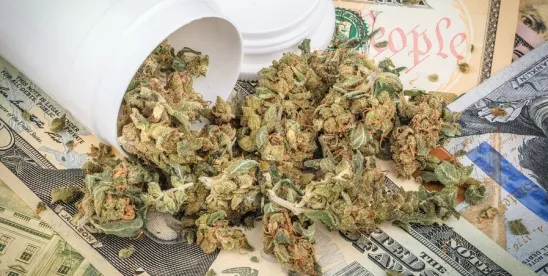US Attorneys, state officials and cannabis industry representatives met in Portland, Oregon on February 2 to discuss how to enforcement will change after Attorney General Jeff Sessions announced changes to Department of Justice (DOJ) policies on the prosecution of marijuana cases. The answer: a crackdown on illegal overproduction in states where cannabis production is legal and a focus on reducing the amount of cannabis being diverted to states where it is still illegal.
On January 4th, the DOJ released a memo that directed all US Attorneys to enforce “the laws enacted by Congress” and “follow well-established principles when pursuing prosecutions related to marijuana activities.” The memo rescinded the Cole Memo and other DOJ guidance that reduced the likelihood of federal prosecution of cannabis businesses in states that permit medical and recreational cannabis use. After the DOJ announcement, the cannabis industry was unsure of how these changes would affect cannabis operations legal under state law and uneasy about the future of the industry.
Some of those concerns were put to rest at the summit. The summit included US Attorneys from six states, as well as the Oregon governor and cannabis industry advocates. Four of the US Attorneys came from states that have legalized recreational cannabis use: California, Colorado, Oregon and Washington. The other two, Idaho and Montana, have not, but border the states that have legalized cannabis and have seen an increase in seizures of cannabis products.
None of the US Attorneys in attendance expressed an interest in cracking down on the industry as a whole, but they did blame cannabis growers that produce more than the legal limits for an uptick in cannabis seizures. US Attorney Billy Williams from Oregon said they were “prepared to do something” about the issue of overproduction in Oregon and other states. He said 16 states had reported marijuana seizures from Oregon and that more than a ton of marijuana had been seized in outbound parcels from Oregon in 2017.
Williams and the other US Attorneys in attendance expressed little appetite for interfering with dispensaries and growers that were operating within state laws. Oregon Governor Kate Brown said, “Attorney Williams has assured my team that lawful Oregon businesses remain valued stakeholders in this conversation and not targets of law enforcement.”
Cannabis industry advocates also came away with the impression that businesses operating within state law will not face increased enforcement. Amy Margolis, executive director of the Oregon Cannabis Association, said, “I did not get the feeling …from the United State attorneys that spoke or participated that any of them were intent on shutting down the regulated industries in their state.” Margolis also said that US Attorneys were correct in looking at the marijuana that is grown in places like Oregon but shipped illegally across the country.
A shift in political opinion may be driving the DOJ’s hesitancy to launch a large-scale crackdown on the legal cannabis industry. Legalization now has the support of 61 percent of all Americans and, for the first time, a majority of Republicans. Rescinding the Cole Memo was one of the milder actions Sessions’ DOJ could take while still following through on its promise to crack down on the cannabis industry.
Still, US Attorneys from other states not represented at the summit may have different views, and the Trump Administration could replace the US Attorneys if they want someone who is more willing to crack down on the cannabis industry. The immediate worst-case scenario for the cannabis industry may have been avoided, but we still expect that there will be a rise in federal prosecutions of cannabis businesses. Growers should ensure that they are not growing more than legal limits and dispensaries should maintain best practices to avoid any complicity that their products are being diverted across state lines.



 />i
/>i

